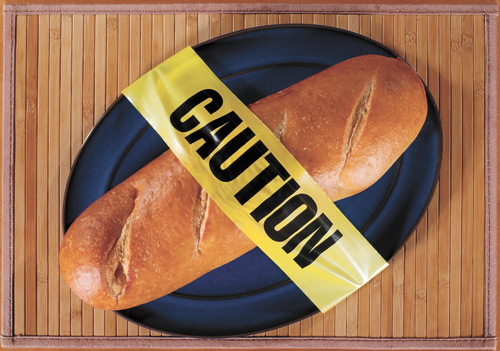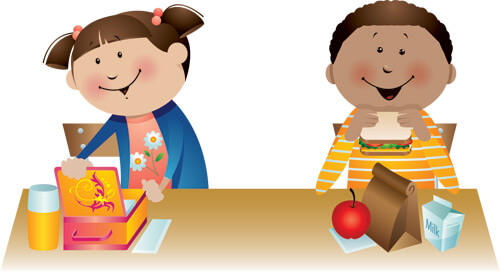
Expert Advice on Living with Celiac Disease
It is Celiac Disease Awareness Month and we want to raise awareness and help educate everyone
this month and on an ongoing basis.
According to the Celiac Disease Foundation, “Celiac Disease is a serious autoimmune disease that occurs in genetically predisposed people where the ingestion of gluten leads to damage in the small intestine. It is estimated to affect 1 in 100 people worldwide, but only about 30% are properly diagnosed.”
In honor of Celiac Disease Awareness Month, we spoke with Weill Cornell Dietitian/Nutritionist Ayelet Goldhaber and are sharing the answers to your top questions about managing, and living with, Celiac Disease and the importance of living with a gluten-free diet.
Psst… Check out these 10 Gluten-Free Restaurants on Long Island!
JB: What essential information should everyone know about Celiac Disease?
AG: Celiac Disease is an autoimmune disease triggered by presence of gluten in the food pipe. For someone with Celiac Disease it is almost like we are attacking ourselves.
The only treatment is to avoid gluten. There is no medication. There is nothing new, crazy, or different. Anytime they ingest any form of gluten they get that response again. Once they go totally gluten-free, they can heal the intestines and things heal themselves but once gluten pops in they get that damage
again.
Villi are like wavy fingers grass in the wind. For those with Celiac Disease, villi in the intestine get cut short and as the gut heals by avoiding gluten, villi grows back like fresh grass. Villi help absorb nutrients, vitamins, and calories so we want them to be luscious like grass. A person who doesn’t have celiac doesn’t need to avoid gluten.
JB: What are key symptoms to watch out for? Any especially non-traditional ones?
AG: There are kids who have no symptoms even with gluten ingestion and it is more challenging. There may be damage on inside but no outside symptoms. A kid may eat gluten and has a major bellyache or rashes or isn’t growing well and thriving.
Symptoms can be anywhere between bellyache, constipation, diarrhea, and bloating to difficulty concentrating, rashes, and headaches. Kids must maintain gluten-free diets no matter how they are feeling. There is a huge spectrum.
JB: Tell us some important facts and challenges as well as common misconceptions?
AG: Cross contamination is a really big part of Celiac Disease and can really have an impact. Minute traces of gluten can make a big difference like using the same spoon for gluten-free or gluten pasta. Took off bread and wiped the plate or counter off with a napkin, that is not adequate for kids with Celiac Disease.
Soap and water does the trick to clean to avoid cross contamination. Kids need confidence and skills to make the right decisions for their health. Once in a while is okay if there’s an accidental ingestion but it is not exaggerated so it is important to give kids confidence and knowledge to thrive.
JB: What should those first diagnosed know?
AG: There’s a tendency to go toward gluten-free foods that are out there but that section is often junk food and cookies and muffins and cupcakes and actually whole natural foods are naturally gluten-free like yogurt, cheese, poultry, fish, beans, all fruit, and all vegetables—focus on whole foods.
I encourage everyone go to whole basic foods instead of the gluten-free section. Whole foods are not marked gluten-free – like pepper isn’t gluten-free but is naturally gluten-free. Keep an open mind and use regular foods not just the label gluten-free.
It is important to make sure that kids still get a well-rounded diet since gluten doesn’t have as much fiber and variety. Kids should get extra fruit and veggie and fiber and hydration. Take a look around the pantry to keep it well rounded.
JB: Are there lifestyle changes that make living with Celiac Disease easier other than a strict gluten-free diet?
AG: Kids with Celiac Disease live like every other kid and there shouldn’t be much of a difference. However, it doesn’t minimize the challenge and these kids should get a lot of credit but live life like everyone else is.
JB: Tell us some advice for those adjusting to dietary changes. Any staples you suggest?
Favorite brands or recipes?
AG: There are so many brands like Rudi, Udi, Amy’s, Made Good, Late July and many of the mainstream brands have gluten-free versions. It is ok to use apps and go for it but take it with reasoning. If it looks outrageous, it probably is.
JB: How can families carefully read labels and what are red flags?
AG: Know how to read a label and what they mean – avoid malt, spelt, as those are not required to be labeled. Wheat is required to be labeled.
JB: Any advice on how to feel safe or steps to take to keep gluten-free and safe eating out or when travelling?
AG: Asking questions is really important and gives you lots of power. This doesn’t feel right so I won’t go here.
Go back to basics. Poultry, meat, fish, beans, potato, and rice are always good. Vegetables and fruit (and dairy often) are a good choice. Go to basic foods without sauces and marinades in restaurants.
Do the leg work before you go: call and read labels and look at websites. It can be very empowering. It takes thinking out of it once you’re at the restaurant and makes it fun.
JB: Tell us advice for families managing a mixed household of gluten-free and not gluten-free?
AG: Soap and water does the trick. No need for separate cooking devises and utensils since residue is gone when washed. It is hard to get rid of crumbs in the toaster oven so get separate toasters and same with a pasta colander because is hard to clean since it sticks to the holes. Anything wooden and porous you swap out. Otherwise, soap and water!
JB: What do you wish more people knew?
AG: Speak to a dietician and keep in close contact. Ask them questions since you know that you don’t have to worry about if it’s a reputable or appropriate source. There are lots of different opinions and experiences so it is hard to sieve it out.
Having your doctor and dietician on standby is comforting and I wish more families used the dietician more. Families have a medical team to turn to so they don’t get lost in the noise and media and social parts of Celiac Disease.
JB: Any words of wisdom and final advice for friends and family of those living with Celiac Disease?
AG: It’s really hard at first and can feel overwhelming but it does level out and get easier and become part of the routine. Like anything else if you start a routine, it gets easier with time -like exercise. Families should establish a routine and have advocates on their healthcare team.
JB: Tell us some trustworthy and reliable resources for those who want to raise awareness and support the cause?
AG: Visit the Celiac Disease Foundation and know that each hospital has its own center.
JB: Anything else that you’d like to add?
AG: If there’s any frustration, look over the pantry and talk to a dietician.
Ayelet Goldhaber MS, RD, CDN, CLC joined New York Presbyterian in 2022 after working at the Hassenfeld Children’s Hospital Ambulatory Care Center at NYU as an inpatient pediatric dietitian.
Ayelet completed her Dietetic Internship in 2012 and MS in Nutrition, both at New York University. She has a BS in Nutrition from NYU and is a Certified Lactation Counselor.
Ayelet works at Phyllis and David Komansky Center for Children’s Health and provides comprehensive individualized nutrition care and counseling for infant and pediatric patients/families with gastrointestinal disorders. Ayelet lives in New York City with her husband and 3 little kids.














